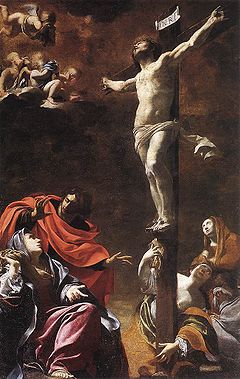A very blessed Holy Week to you all.
Have you noticed--or maybe it's just me--how creepy American popular culture has been getting lately? Every time I turn on TV it seems that the stories on current dramas are growing darker and more gory and, well, just kind of sick. We are deluged with stories of grizzly sex crimes, serial killers, cannibals, and just lots of perverted, violent stuff. Maybe it's always been like this and I'm just getting more sensitive in my old age, but I almost feel as if the culture is obsessed with darkness.
Even stuff which used to be kind of innocent has taken on a sense of menace, disease, and dysfunction. As a kid I used to read Marvel Comic Books. They were fun fantasies then. But I don't know if I could recommend to a six-year-old today the adventures of a Spider Man who is being consumed by the "dark side" of his nature, or a Captain America with PTSD, or an Iron Man with a substance abuse problem! Even our fairy tales are being repackaged in a more sinister form with TV dramas such as "Grimm" and "Once Upon a Time."
And yet, people still tell me that they don't want to attend a Good Friday tenebrea worship because it's "too depressing!"
To an extent, I have to agree with them. The presence of human darkness is deep within the Christian mythology and ritual--and no more so than during this week. On Holy Thursday we see Judas, a symbol of treachery and greed. We see the machinations of the Sanhedrin, supposedly a wise council, but puffed-up with arrogance, lust for power, and jealousy. And on Good Friday there is that consummate thug, Pontius Pilate, as ruthless as Bashar al-Assad in putting down dissent, surfeited with corruption and cruelty.
All of this leads us to the contemplation of that most obscene invention of human brutality--the cross.
But running throughout this story of thorns, mockery, impaled flesh, and abandonment is a parallel story of self-emptying, sacrificial love and forgiveness.
"Then Jesus said, 'Father, forgive them; for they do not know what they are doing.'" (Luke 23:34)
Our current popular culture of darkness is really rather safe by comparison. It does not require anything of us but to enjoy being scared and to relax when the story is over. But the darkness of Holy Week is entwined with the light of God who calls us to look at ourselves and see what we are capable of doing, and then to look to God and see how God is capable of loving.
This darkness requires our response.

No comments:
Post a Comment